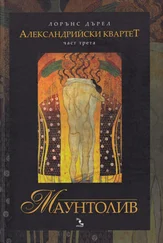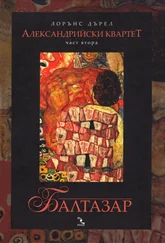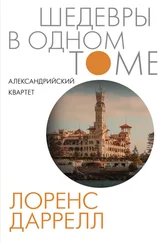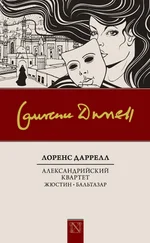Лоренс Даррелл - Prospero's Cell
Здесь есть возможность читать онлайн «Лоренс Даррелл - Prospero's Cell» весь текст электронной книги совершенно бесплатно (целиком полную версию без сокращений). В некоторых случаях можно слушать аудио, скачать через торрент в формате fb2 и присутствует краткое содержание. Жанр: Проза, на английском языке. Описание произведения, (предисловие) а так же отзывы посетителей доступны на портале библиотеки ЛибКат.
- Название:Prospero's Cell
- Автор:
- Жанр:
- Год:неизвестен
- ISBN:нет данных
- Рейтинг книги:4 / 5. Голосов: 2
-
Избранное:Добавить в избранное
- Отзывы:
-
Ваша оценка:
- 80
- 1
- 2
- 3
- 4
- 5
Prospero's Cell: краткое содержание, описание и аннотация
Предлагаем к чтению аннотацию, описание, краткое содержание или предисловие (зависит от того, что написал сам автор книги «Prospero's Cell»). Если вы не нашли необходимую информацию о книге — напишите в комментариях, мы постараемся отыскать её.
Prospero's Cell — читать онлайн бесплатно полную книгу (весь текст) целиком
Ниже представлен текст книги, разбитый по страницам. Система сохранения места последней прочитанной страницы, позволяет с удобством читать онлайн бесплатно книгу «Prospero's Cell», без необходимости каждый раз заново искать на чём Вы остановились. Поставьте закладку, и сможете в любой момент перейти на страницу, на которой закончили чтение.
Интервал:
Закладка:
VI. LANDSCAPE WITH OLIVE TREES
10.1.38
Dominant in a landscape full of richer greens, the olive is for the peasant both a good servant and a hard master. In the good olive year whose harvest stretches across from January to May, the whole country population is busy attending to the tree which provides the island witn its staple diet — olive oil.
Throughout the spring months, through the gales of March and the hard sunspots of April, the tireless women are out with their soft wicker hampers gathering the fruit as it falls. In the other islands the fruit is beaten from the tree and the tree itself pruned; but in Corcyra this has been, for hundreds of years, considered harmful. Prolix in its freedom therefore the olive takes strange shapes; sometimes it will swell and burst open, ramifying its shoots until a whole clump of trees seems to grow out of the breast of the parent; in some places (there is one particular grove between Kouloura and Kassopi) the trees grow tall and slender, with bodies not rough, but of a marvellous platinum-grey, and branches aerial and fine of attitude. In the northern crags again the olive crouches like a boxer; its roots undermine roads; its skin is rough and wormy; and its pitiful exhausted April flowering is like an appeal for mercy against the conspiracy of rock and heat.
There is no estate without its oil magazine — a low building with stamped earthen floor which houses the presses and all the machinery of the trade. It is here that the long lines of coloured women come, bearing their baskets full of the sloe-shaped fruit, now covered in bloom. And here they stand, gorgeous as birds, they shake the rain from their dresses and receive their dole of bread and piercing garlic.
Built up against the wall of the magazine lie the cold stone bunkers which slowly brim with the fruit; while monstrous in the shadows stands the massive and primitive mill. This has a stone bed with a gutter about three feet high. From its centre a beam supports a granite millstone. A smaller beam standing at right angles to this can be harnessed to the neck of a pony which supplies the millstone's power.
On wet days when a big wood fire is built at which the women can dry themselves as they come in from olive-gathering, the shadows leap and flap against the gloom of the archways, throwing into sudden relief the strings of onions and tobacco hanging from the roof, the unruffled chickens lying in the straw, the weavingloom, and perhaps the sagacious evil face of the billy-goat munching in a corner.
The olive-gathering is an all-weather business; in the blinding February storms you hear the little hard berries dropping to the ground, and, if you happen to be standing on high ground looking southward you can see the visible track of the north wind as it strikes the valley, turning the olive trees inside out — so that they change from green to silver and back to green. Under the shelter of archway and wall the women stoop in circles steadily filling their hampers while the rain rattles like small-shot in the leaves about them and the first thirsty wild flowers stir in the cold ground under their feet.
But the olive-tree has hardly suited its internal economy to its position, for its attenuated white flowering commences in April, just when it is most occupied with the ripening of its fruit: so that if its previous year's blossom has been prolific, it has hardly the strength to blossom again. Its crop is irregular, and the lean years for the harvesters are very lean indeed. Bread and oil as a diet hardly leaves any margin for thrift.
After the first pressing in the mill-bed the men come with their wide-mouthed baskets and gather up the magma, piling its greyish mass into a wooden press; the pony, whose efforts at the millstone are now no longer necessary, is unharnessed and turned loose in the paddock. Taking up the long wooden lever, the men begin to screw at the pulp, helping the oil away if the weather is cold, by pouring boiling water upon it. As the pressure becomes stronger, they fasten a rope to a sort of primitive windlass, and give the creaking structure their whole weight. It is like the birth of something in the gloom of the great magazine; their groans echo through the cypress floors of the house. The windlass creaks. The fowls cluck nervously about the feet of the men. Appreciatively sitting in the great fireplace with the light playing upon his beard, the abbot of the local monastery lends moral support as he sips his glass of wine.
The oil itself spurts dirtily in the stone gutters and slips drop by drop into the underground stone tanks where it will be left to settle itself into purity; while the madder coloured acid refuse is run off into the gutters — where its pungent smell and the scorched herbage of its course are familiar characteristics of the landscape.
After many settlings in the various stone tanks the oil is considered pure enough to send to the town to the bulk dealers, poured into leather skins, which bobble and gulp, it is loaded into carts which rumble slowly off down the circuitous paths to Corfu. Bright and greasy in the sunlight the skins jog hideously together like so many truncated corpses.
The cakes of the refuse, now dried brown and stiff, and empty of juice, are stacked in the dry corners of the magazine, to be used later for fuel. Broken up they burn with a subdued smouldering warmth, and added to wood and coal, give our winter stove fuel enough to carry us through the three worst months.
Though the olive is an undependable friend its role never varies; dipped into it, the coarse peasant bread tastes dense and foul — yet the children of the fishermen have warm brown skins and dazzling white teeth. Everything is cooked in it. And it is only poetic justice to observe that every saint's shrine has lamps which are replenished by the offering of the poor, who have slaved nearly the whole year round in varying weather to gathering the yield of the tree.
The whole Mediterranean — the sculptures, the palms, the gold beads, the bearded heroes, the wine, the ideas, the ships, the moonlight, the winged gorgons, the bronze men, the philosophers — all of it seems to rise in the sour, pungent taste of these black olives between the teeth. A taste older than meat, older than wine. A taste as old as cold water.
The olive in Corcyra is the smallholder's pride, and in the wooded parts of the island land values are usually computed on the basis of the number of olive-trees. It is usual for the larger proprietors to let out the season's oil crop to the peasant living on the property, who works the crop and receives half the oil in return. But in the poorer villages holdings can amount to as little as two or three trees — and prospective property speculators take great care when buying a piece of land, to find out who owns the olive-trees, as their possession confers right of way.
14.1.38
Abstemious in the matter of drinks, the Greeks produce their own light wines and cognacs in abundance. Yet during our whole stay here we have seen a drunk person not more than once; and more endearing still, we have discovered that these people have so delicate a palate as to be connoisseurs of cold water. The glass of water appears everywhere; it is an adjunct to every kind of sweetmeat, and even to alcohol. It has a kind of biblical significance. When a Greek drinks water he tastes it, and pressing it against the palate, savours it. The peasants will readily tell you which wells give the sweetest water, while even the townspeople retain a delicate taste in water, and are able to recognize the different sources from which the little white town handcarts (covered in green boughs) are replenished.
Two days before Christmas we climbed the dizzy barren razorback of Pantocratoras to the monastery from which the whole strait lay bare, lazy and dancing in the cold haze. Lines of dazzling water crept out from Butrinto, and southward, like a beetle on a plate, the Italian steamer jogged its six knots towards Ithaca. Clouds were massing over Albania, but the flat lands of Epirus were frosty bright. In the little cell of the warden monk, whose windows gave directly upon the distant sea, and the vague rulings of waves to the east, we sat at a deal table and accepted the most royal of hospitalities — fresh mountain walnuts and pure water from the highest spring; water that had been carried up on the backs of women in stone jars for several hundred feet.
Читать дальшеИнтервал:
Закладка:
Похожие книги на «Prospero's Cell»
Представляем Вашему вниманию похожие книги на «Prospero's Cell» списком для выбора. Мы отобрали схожую по названию и смыслу литературу в надежде предоставить читателям больше вариантов отыскать новые, интересные, ещё непрочитанные произведения.
Обсуждение, отзывы о книге «Prospero's Cell» и просто собственные мнения читателей. Оставьте ваши комментарии, напишите, что Вы думаете о произведении, его смысле или главных героях. Укажите что конкретно понравилось, а что нет, и почему Вы так считаете.







